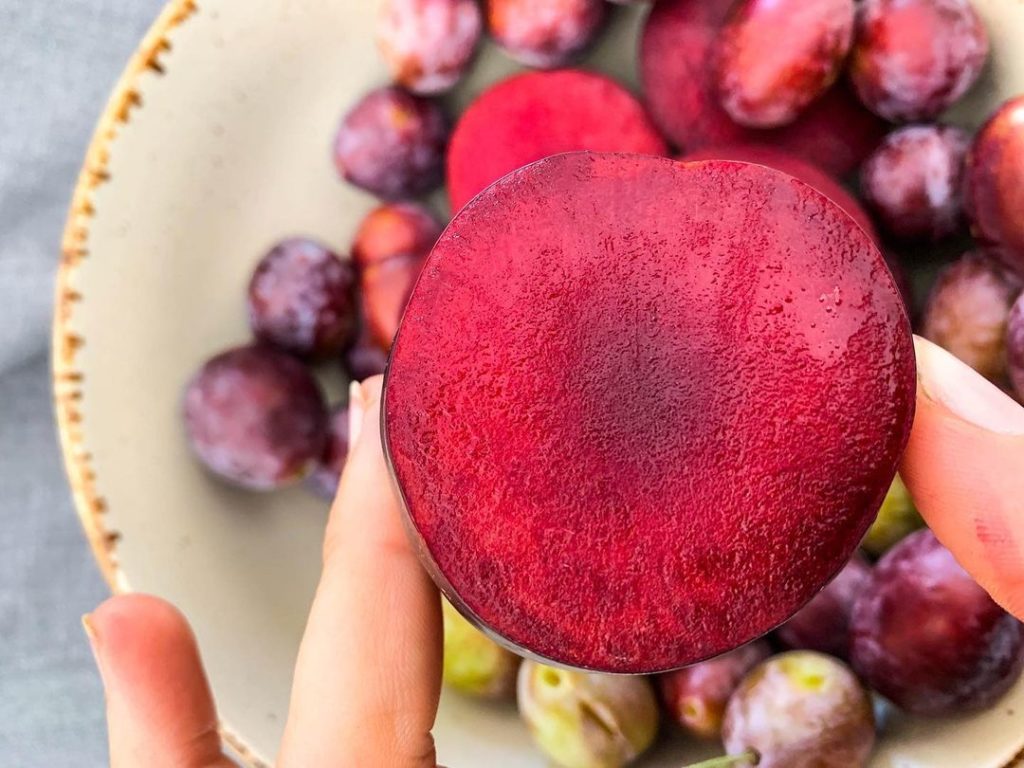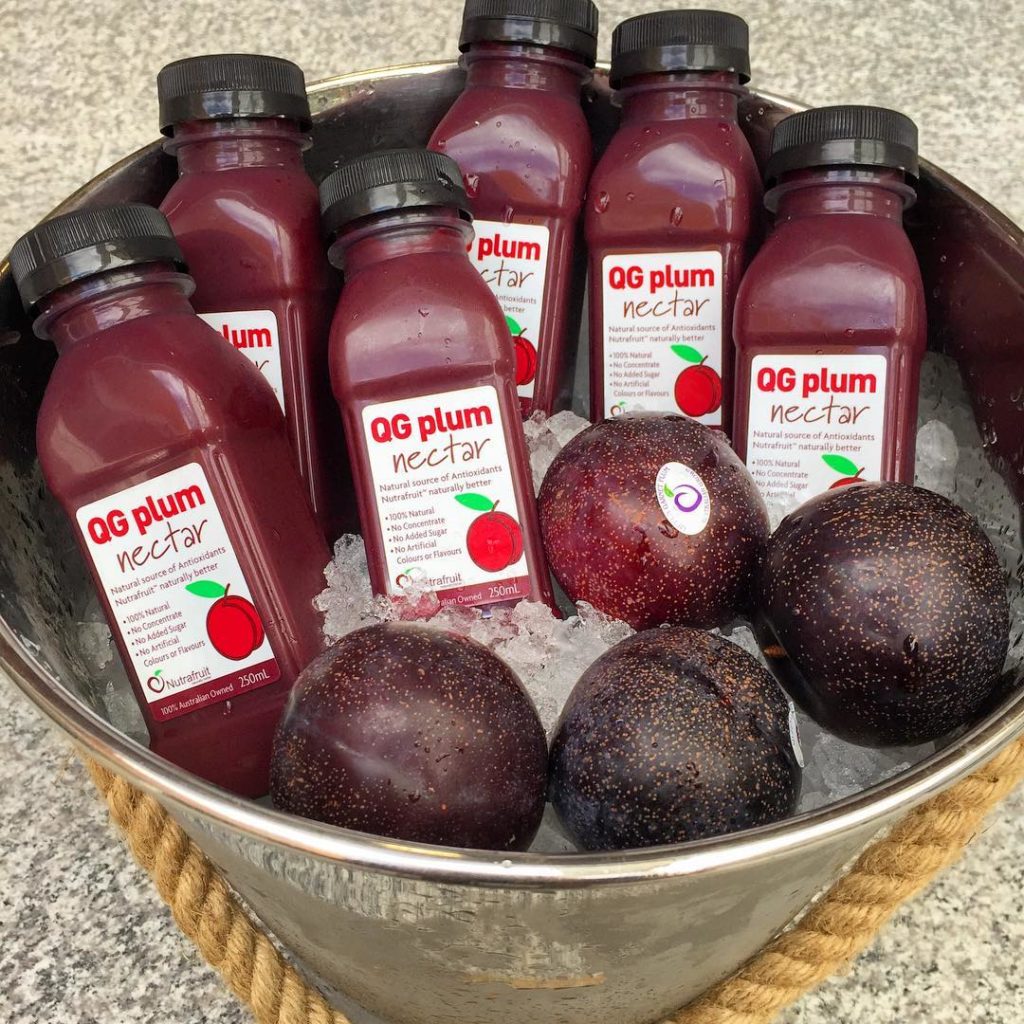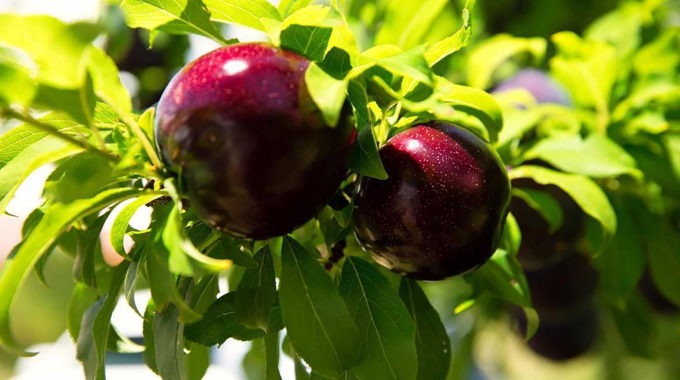Sweet success in fight against food waste
Facing a chronic shortage of summer workers due to COVID-19 restrictions, fruit farmers will likely throw millions of tonnes of unpicked crops in the bin – with some even destroying established trees. But researchers from the University of Southern Queensland are harnessing the power of one purple fruit in the nationwide war on waste.
The researchers are working with Brisbane company Nutrafruit, which develops retail-ready value-added products using minimal waste processing methods, to maximise the use of the Queen Garnet plum and stop any from ending up in the bin.

The Queensland-born fruit was created accidentally by the Department of Primary Industries 10 years ago. Containing anti-cancer properties and a special group of fat-burning antioxidants called anthocyanins, the fruit sells for around $9 a kilogram in the current market. But it’s the Queen’s nectar and freeze-dried powder that has royally spiked the interest of food scientist Dr Polly Burey from the University of Southern Queensland.
“Our researchers will work closely with Nutrafruit to find out more about the Queen Garnet plum supply chain and how to maximise the entirety of the crop,” she says.
Last year, 20 percent of the Queen Garnet crop was classed as lower-grade and sent for processing; however, some still ended up in landfill.
“Nectar and powder products have a much longer shelf life than fresh plums, so we can prevent any going to waste,” Dr Burey says. “They are also a great source of anthocyanins.”

Dr Burey and her team will train staff in how to track nutrient content of the Queen Garnet plum through the entire supply chain, resulting in optimal use of the fruit during processing and bottling, and a more fruitful annual profit.
Each year, around 7.3 million tonnes of food ends up in Aussie bins, costing the economy $20 billion. It’s hoped the university’s involvement in Nutrafruit’s plum waste project will help towards Australia’s goal to halve its food waste by 2030.









